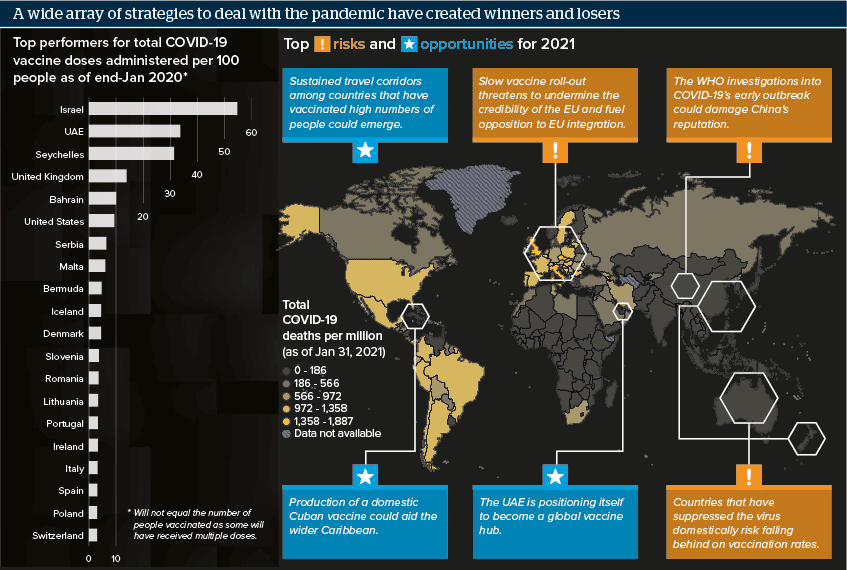Risks and opportunities 2021: COVID-19
Vaccination campaigns are at the heart of most countries’ strategies to exit pandemic lockdowns and restrictions
Source: Johns Hopkins Center for Systems Science and Engineering (CSSE), Our World In Data; Map styling: ‘Wargames’ by Daniel P. Huffman via Project Linework
Outlook
Early improvements in 2021 on the COVID front will probably be limited either to rich countries that are rolling out vaccines fast, such as Israel, the United Arab Emirates and the United Kingdom, or to those that have pursued strategies that eliminate the virus domestically, such as Australia, New Zealand, China and Taiwan, which have been able to reopen their economies.
Reliance on vaccines to end lockdowns, rather than elimination strategies, puts countries in a race against COVID-19 with many potential downsides. Vaccine roll-outs are subject to logistical delays and production shortages. In the meantime, allowing COVID-19 to circulate lets the virus accumulate mutations that could escape vaccines and necessitate boosters, delaying the end of the pandemic.
Impacts
- ‘Vaccine diplomacy’ could help vaccine-producing countries strengthen relationships.
- Variants may necessitate booster vaccines and border controls into 2022.
- Logistics delays, production shortfalls and vaccine hesitancy will push back most countries’ vaccination campaigns.
- Lack of transparency and publicity schemes have damaged trust in -- and uptake of -- China’s and Russia’s vaccines.
See also
- Lifting measures early after jabs may keep deaths high - Feb 12, 2021
- Vaccine rollouts will differ across the Caribbean - Jan 26, 2021
- Emirates position to become global vaccine hub - Jan 19, 2021
- France’s vaccine programme faces difficult challenges - Jan 8, 2021
- Prospects for COVID-19 in 2021 - Nov 19, 2020
- More graphic analysis
